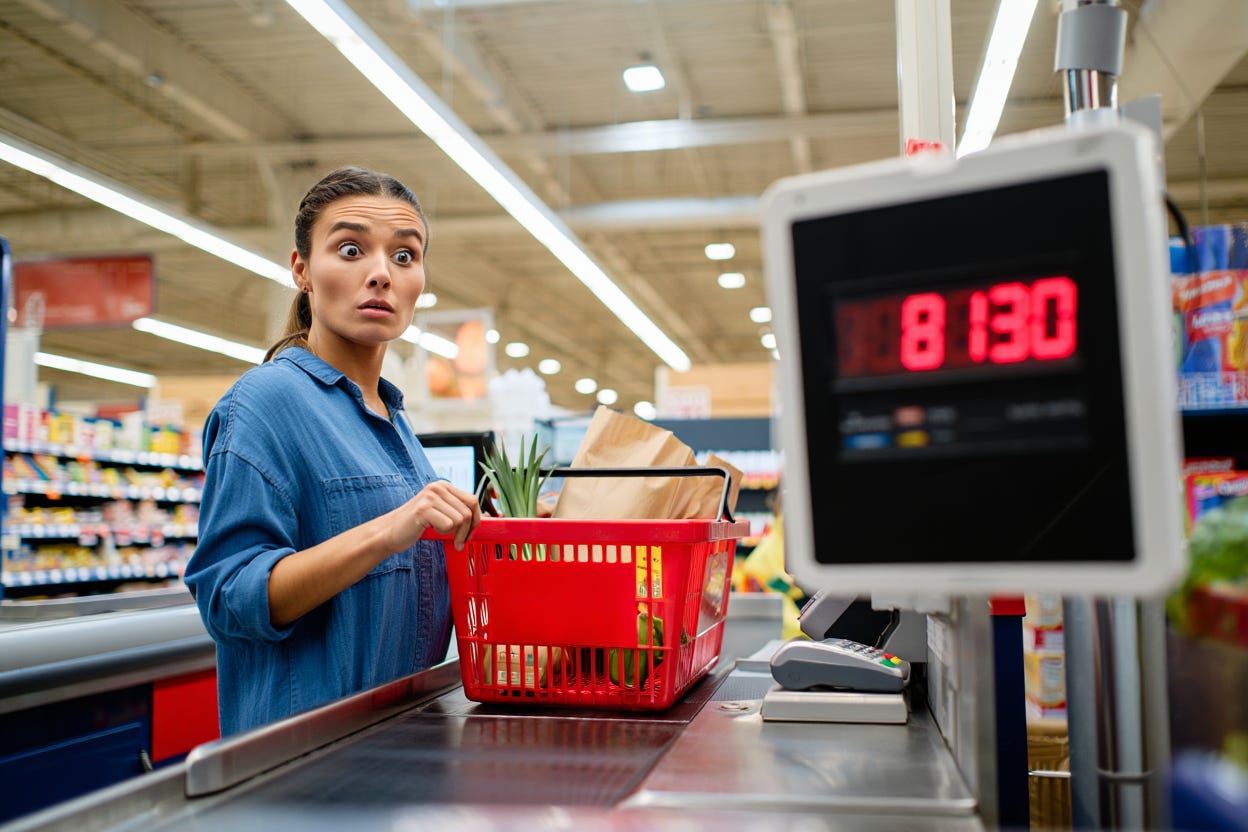Brits face eye-watering food bills thanks to “climateflation”, experts warn
A million could be pushed into poverty unless urgent action is taken, as extreme weather wreaks havoc on harvests and global food supplies
Britain is on the brink of a devastating food price crisis, and it’s all down to the rising threat of “climateflation”, experts have claimed.
In a stark warning, a new report from the Autonomy Institute thinktank claims nearly a million people in the UK could be plunged into poverty unless ministers step in to shield families from soaring costs. The price of staple foods—from bread and rice to fruit and veg—could spiral out of control, driven by heatwaves, droughts, and global supply chain disruption.
And with Britain importing almost half of its food, the country is acutely vulnerable to climate shocks in key regions such as Spain, France, Brazil and west Africa.
“Climateflation is no longer a distant risk; it’s a present reality,” said Will Stronge, chief executive of the Autonomy Institute. “We need to build real economic resilience—and that means rethinking what public service provision can and should provide in the face of climate disruption”.
The thinktank’s dire forecast follows news that the UK’s inflation rate rose to 3.6% in June, with food and fuel prices once again hammering household budgets.
Supermarkets have already reported reduced harvests due to blistering heat and dry spells, while bad weather in Brazil and Vietnam has sent coffee prices surging. Even chocolate has taken a hit, with poor crops in west Africa sending prices soaring.
Using climate modelling and economic data, Autonomy researchers warned that unless drastic action is taken, food price inflation could rise by 34% under a worst-case emissions scenario where global temperatures rocket by 4C.
But is this another example of boffins underplaying the risks that we face?
Another recent report highlights some of the mind-blowing food price spikes we have already seen:
Australia, lettuces: Jun 2022, a 300% price increase
Ghana, Ivory Coast, cocoa: Apr 2024, 280%
Vietnam, Robusta coffee: Jul 2024, 100%
India, onions/potatoes, Jun 2024, 89%
US, vegetables: Nov 2022, 80%
South Korea, cabbages: Sep 2024, 70%
Brazil, coffee: Aug 2024, 55%
Italy and Spain, olive oil: Jan 2024, 50%
The report, involving top scientists from the UK’s Energy & Climate Intelligence Unit, the European Central Bank, and others, reveals that bizarre weather patterns between 2022 and 2024 caused food prices to explode in 18 countries.
And they don’t mince their words: this is not just about a price shock at the check-out—the effects are wide-ranging.
The report warns that rising food costs mean the poorest households are being forced to cut back on healthy staples, pushing them towards cheaper, more dangerous diets.
“Sadly, when the price of food shoots up, low-income families often have to resort to less nutritious, cheaper foods,” warned lead author Maximilian Kotz from the Barcelona Supercomputing Center. “Diets like this have been linked to a range of health conditions like cancer, diabetes and heart disease.”
And it’s not just wallets that are affected—democracy may be taking a hit too.
“It is clear the cost of living played a role in last year’s election in the US”, Kotz added. “These effects are going to continue to become worse in the future... it’s already damaging crops and pushing up the price of food all over the world”.
The report even links political uprisings to food price shocks, such as riots in Mozambique when Russia blocked wheat exports in 2010 after extreme heat reduced crop output. “Food price inflation is always political,” said Raj Patel, professor at the University of Texas.
So the question remains, how much faith do you have in the likes of Two Tier Keir and Four Homes Farage to do what is necessary to protect our country from descending into a food cost crisis? We need to deliver Our Fair Future before SHTF.



